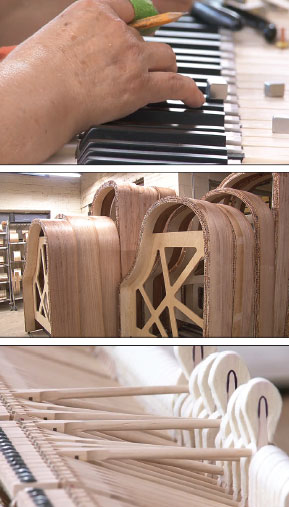Steinway keys in on China
Updated: 2016-10-21 11:52
(China Daily USA)
|
|||||||||
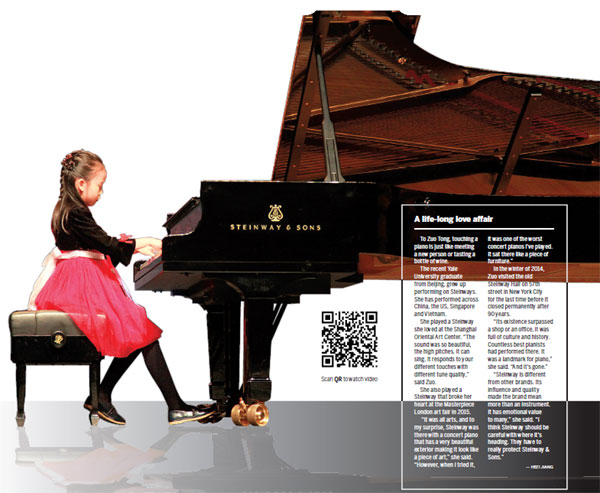
It's considered the finest musical instrument ever made and the price tag shows it, but will it catch on in China? Hezi Jiang reports from New York.
When Yu Zhang-Koslovsky first came to Manhattan School of Music in 2000 to pursue her bachelor's degree in piano, she felt completely spoiled. "I got to practice on a Steinway piano every day!" she said.
Back then at the Central Conservatory of Music in Beijing (where Zhang studied alongside a classmate by the name of Lang Lang), students were only allowed to practice on a Steinway for a few hours - if the teachers were nice enough to let them sneak in the concert hall - before a competition or recital.
These days, all students at the Central Conservatory get to be spoiled, as it has become one of the several "All Steinway" schools in China.
Steinway & Sons, the storied 163-year-old New York- and Hamburg-based piano brand, is seeing opportunity in this distant land, where the government is encouraging music education, the affluent are looking for a luxury lifestyle items beyond Herms bags and parents are anxious to provide their children with the things they didn't have but only dreamed of growing up - things like beautiful Western musical instruments.
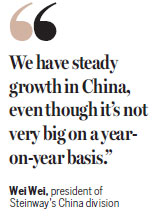
Beyond pushing for sales in conservatories and schools, Steinway is making a big marketing effort to put their high-end pianos in Chinese homes.
Steinway entered the Chinese market in 1999. In those early years, more than 90 percent of their sales were to music conservatories and concert halls.
"Very seldom were there any private orders, simply because individuals couldn't afford it at the time," said Wei Wei, president of Steinway's China division, who has been with the company since it opened its first China office in 2004.
Starting in 2007, they started to see more and more private orders. "In 2009, for the first time, our sales to private consumers and institutional consumers were roughly half and half," said Wei. "More and more people can afford a Steinway and more and more people are paying attention to their quality of life."
Today, Steinway pianos are sold in 62 dealer stores in 39 Chinese cities.
Steinway makes four product lines available to Chinese customers: the traditional Steinway & Sons line made in Hamburg, Germany, with grand pianos starting at 700,000 yuan ($116,000) and uprights from 400,000 yuan ($67,000).
Two budget brands manufactured in Asia by OEMs (original equipment manufacturer): Boston grand pianos starting at from 178,000 yuan ($29,000) and uprights from 90,000 yuan ($15,000) and the Essex grand piano start from 85,000 yuan ($14,000) and uprights from 36,000 yuan.
By contrast, a Steinway grand piano starts from $63,100 in the US, and a upright starts from $31,700, which are only a little more than half of the Chinese price. The ratio also applies to Boston piano, which are manufactured in Japan. The prices for Essex are about the same due to that Essex pianos sold in China are manufactured in the country.
|
Above: Scenes from Steinway's factory in Queens, New York.Below: Wang Keyi, 8, plays at the 7th Steinway & Sons International Youth Piano Competition in China last December. She took home top prize. Provided To China Daily |
A fourth budget brand, slightly more expensive than the Essex, was specifically designed for the Chinese market. Called Lang Lang pianos after China's household name celebrity pianist and idol of the 40 million Chinese children who are learning piano, the line was launched in 2007 as a major effort to build brand awareness.
Steinway doesn't give out its sales numbers, but Wang Yi, a former Steinway concert piano technician, estimated that about 6,000 Boston pianos are sold in China each year.
Wei Wei said that more than 2,000 Steinway & Sons pianos, excluding the three budget lines, have been sold in China since day one in 1880. The number is not insignificant considering that only about 2,000 pianos are made each year at the Hamburg factory, which supplies the Chinese market. Steinway's US-based operation in Queens, New York, also produces about 2,000 pianos a year to supply North and South America.
The Chinese sales team has to pass a training program that familiarizes them with the brand's history, piano-making techniques and the potential "investment" return on a Steinway.
On its Chinese-language website, Steinway offers not only a typical buyer's guide but also a "Steinway piano investment brochure".
"The best time to invest in a Steinway piano is now," the brochure reads. "Steinway pianos on average appreciate 4 percent each year. A 50-year-old Steinway is worth nine times its original price."
The Chinese operation has flown customers to Hamburg for a tour of the factory and an up-close look at how the handmade instruments are put together.
Next year, the company will move to a new 60,000-square-foot Asia headquarters in Shanghai, complete with a recital hall.
Besides targeting the Chinese in China, Steinway has a global plan.
Yu Zhang-Koslovsky, who earned a Doctorate of Musical Arts at Julliard, was hired by the New York headquarters to help receive walk-in Chinese customers at the company's recently opened headquarters at the corner of Avenue of the Americas and West 43rd Street in New York City.
Zhang-Koslovsky was kept quite busy this summer with many Chinese tourists coming into the hall, mostly parents bringing their kids in to bang on the largest assortment of Steinway pianos any of them has ever seen.
"The kids are so happy, they get to try all the Steinways, and the parents are so proud to see their kids playing here," she said. Though these visits rarely lead to immediate sales, Zhang believes it's this kind of brand connection that will lead to Steinway's broader success in China.
"Chinese parents are a very dedicated group," said Zhang, whose own father bought her a 2000 yuan ($333) piano back in 1985 when she was 4 after he heard one played for the first time while on a business trip to the south.
"Back then, the only electronic appliance we had was a tube TV. 2000 yuan was a lot for us," she said, adding that many in the family thought her father was wasting his money. Her piano career silenced that.
Today, more and more Chinese parents are willing to make a similar investment. They pay for expensive piano classes and lessons and often buy the most expensive pianos they can afford.
A Chinese mother who was in the process of relocating to New York recently came into Steinway Hall wanting to buy a piano for her daughter. Even though she was still apartment-hunting, she asked how soon the piano could be delivered - she wanted her daughter to start practicing as soon as possible.
On the menu bar of Steinway Hall's website, the Chinese characters zhong wen (meaning Chinese) are prominently placed. Clicking on it presents the company's Mandarin services, explaining that for no charge a Steinway technician will visit the customer's home and help determine the best size and model for the space.
To build the bond with parents and their children, since 2002 Steinway has been holding the Steinway & Sons International Youth Piano Competition every two years in China. Last December, 16,000 contestants took part, each getting a chance to play a top-of-the-line, 9-foot Steinway concert grand, even though many can't reach the pedals.
"The Chinese have a thing for brand names. Of course they love Steinway," said Wang, a former Steinway concert piano technician who is now a technical advisor to Canadian piano manufacturer Heintzman and Chinese brand Xinghai.
Wang Yi has had taken apart many old Steinways to study the craftsmanship of the founder Henry Steinway and his sons. "Through each part you can see their devotion and passion for piano-making," he said. "Sometimes the 88 keys can touch your heart 88 times."
"Steinway and Sons is the golden standard of piano-making," said Wang.
For others, it's also the symbol of luxury and love.
One of Zhang-Koslovsky's Chinese clients bought a Steinway for her Long Island home even though she doesn't know how to play. The piano will sit prominently as a beautiful piece of furniture for when her niece visits from Hong Kong. "A nice auntie," she said.
Another customer flew in from China and bought a limited edition grand piano as a gift for $160,000, with an additional $5,000 air delivery fee to China.
In recent years, Chinese customers have also bought some of Steinway's most expensive pianos, including the $1.3 million "China First", which was inspired by the first Steinway piano brought to China in 1880 and took two years to create.
The most expensive yet, the $1.63 million "Sound of Charm", was specially built and customized for Guo Qingxiang, head of Wanda Group's art collection. Three years in the making, its logo is painted with crystallized gold.
Underneath it all, it's the heart of a legend that still sings through.
Contact the writer at hezijiang@chinadailyusa.com
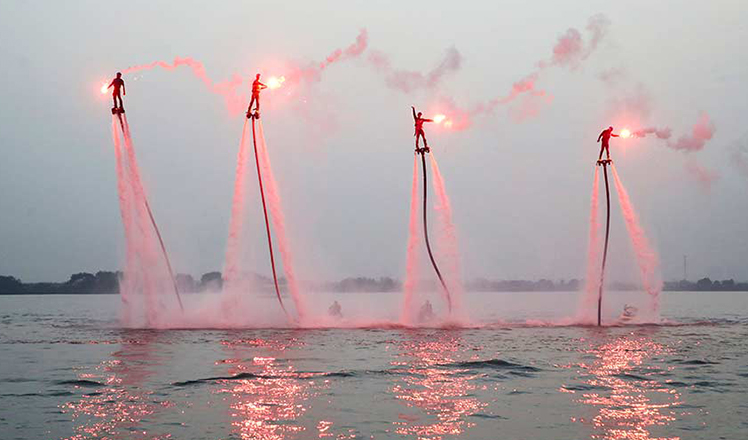
 Ten photos from around China: Oct 14-20
Ten photos from around China: Oct 14-20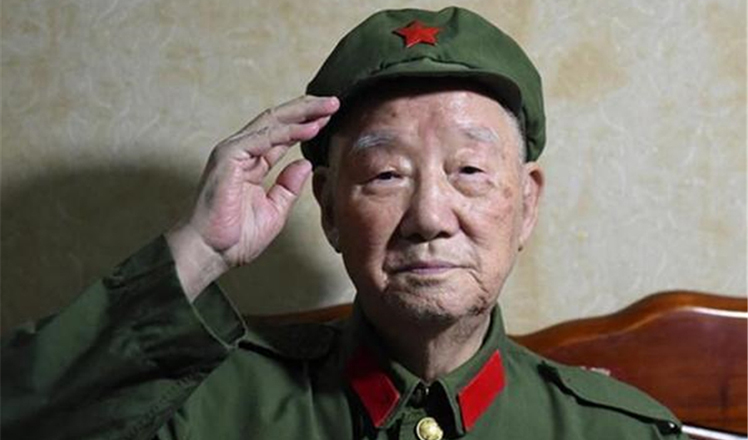
 Veterans mark 80th anniv. of end of Red Army's Long March
Veterans mark 80th anniv. of end of Red Army's Long March
 Road with 24 bends zigzags in Southwest China
Road with 24 bends zigzags in Southwest China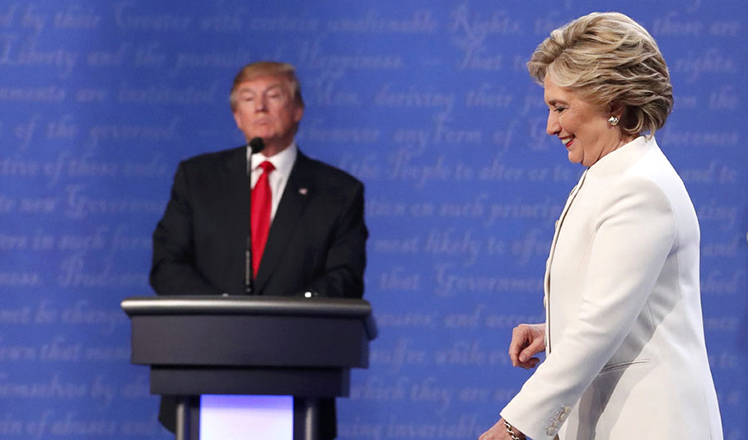
 Trump refuses to say he will accept election results
Trump refuses to say he will accept election results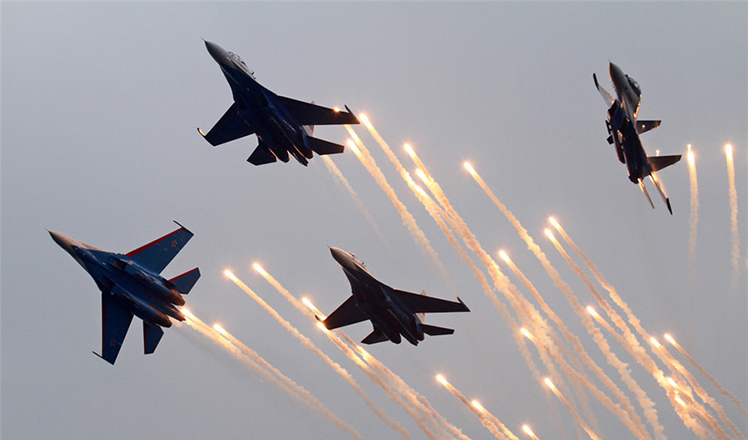
 Top guns: Airshow China in past two decades
Top guns: Airshow China in past two decades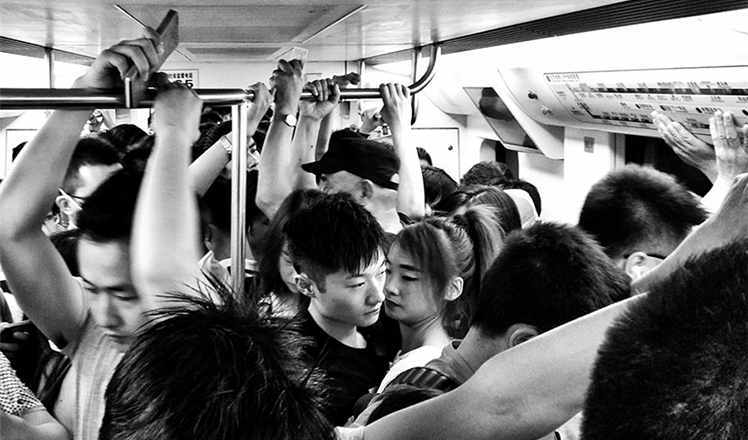
 Street photographer captures hustle-bustle of Beijing
Street photographer captures hustle-bustle of Beijing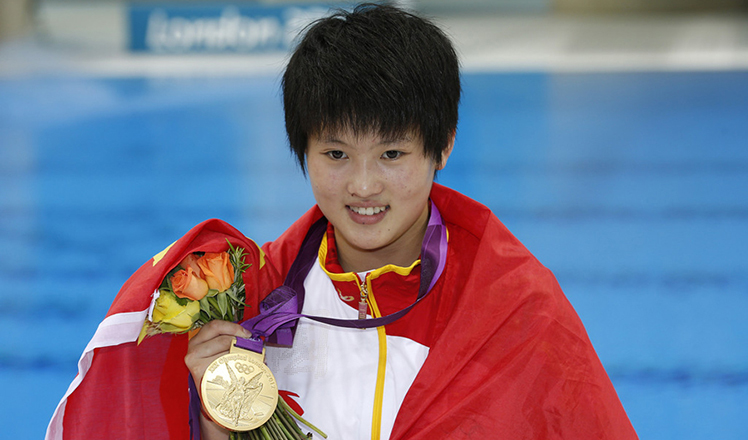
 Five-time Olympic champion diver Chen Ruolin retires
Five-time Olympic champion diver Chen Ruolin retires
 Glimpse into lifestyle of astronauts in space
Glimpse into lifestyle of astronauts in space
Most Viewed
Editor's Picks

|

|

|

|

|

|
Today's Top News
'Zero Hunger Run' held in Rome
Trump outlines anti-terror plan, proposing extreme vetting for immigrants
Phelps puts spotlight on cupping
US launches airstrikes against IS targets in Libya's Sirte
Ministry slams US-Korean THAAD deployment
Two police officers shot at protest in Dallas
Abe's blame game reveals his policies failing to get results
Ending wildlife trafficking must be policy priority in Asia
US Weekly

|

|
